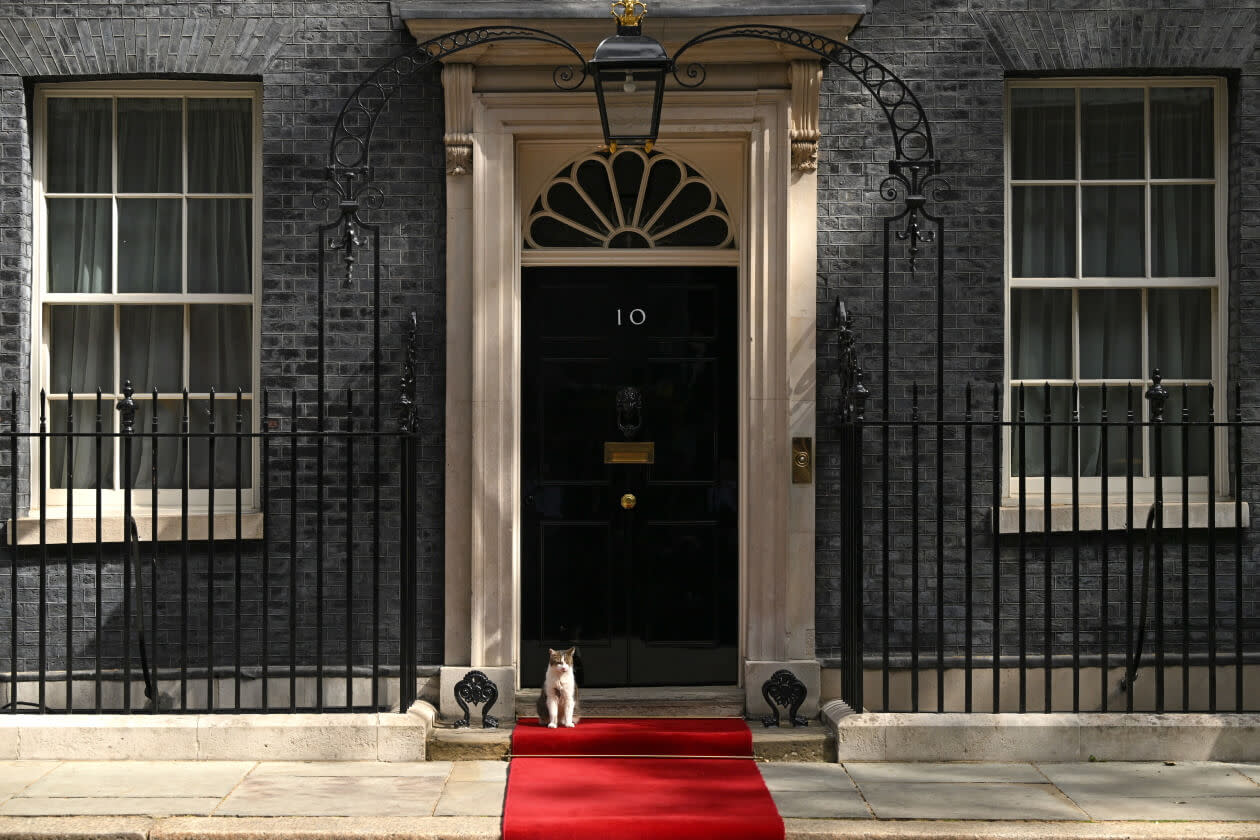Rachel Reeves was unable to rule out further tax rises in the Autumn budget as it was announced that the UK economy shrank by 0.3% in April.
The latest GDP figures revealed by the Office for National Statistics are worse than the 0.1% fall expected by economists, adding to growing scrutiny of the Chancellor just hours after her spending review.
The review marked a watershed moment for the Government, with Ms Reeves promising an extra £29 billion a year for the NHS and the biggest cash injection into social and affordable housing in 50 years.
But economists have questioned whether tax rises were “almost inevitable” in the Autumn because of the strain it could put on public finances.
When quizzed on Sky News about whether she may have to raise taxes further on Thursday, Ms Reeves appeared to avoid the question, saying that “she was not going to write budgets for the future”.
The Chancellor added that she would “never have to repeat a budget like the one I set out in October last year”, saying she had to draw a line under the mismanagement of the previous Conservative Government.
Pressed further on analysts' predictions that council tax will have to rise by the maximum amount, the Chancellor repeated that the government’s priority was not to increase taxes on working people, citing how national insurance, income tax and VAT have not been raised.
She told Sky News: “We recognise that the last few years, with hikes in interest rates, with hikes in energy prices, with higher food prices in the shops that people have been through a lot. That’s why it’s really important to be and really important to this government to honour that commitment to not increase those key taxes that the government levies on ordinary people.”
Similarly, when asked on LBC if she could reassure voters that there would be no tax rises in the Autumn, Ms Reeves said: “I think it would be very risky for a chancellor to try and write future budgets in a world as uncertain as ours."
Ms Reeves also denied that she is a “Klarna Chancellor” who announced a “buy now, pay later” spending review, insisting that all measures announced in the spending review were fully funded.
Responding to the news that the economy shrank further than expected in April, the Chancellor acknowledged the numbers were “clearly disappointing” but insisted her spending review, delivered to MPs on Wednesday, would help deliver growth.
Ms Reeves said: “Our number one mission is delivering growth to put more money in people's pockets through our Plan for Change, and while these numbers are clearly disappointing, I'm determined to deliver on that mission.
“In yesterday's spending review we set out how we'll deliver jobs and growth - whether that's improving city region transport, a record investment in affordable homes or funding Sizewell C nuclear power station. We're investing in Britain's renewal to make working people better off.”
The Chancellor conceded that April was a “challenging month” but said the data was “perhaps not entirely unexpected” given uncertainty around tariffs.
US President Donald Trump announced sweeping levies on imports on the US in April, creating financial turmoil and sending global markets into a spin.
April’s drop in VAT was the biggest monthly contraction the UK economy has seen for a year and a half, and was the biggest monthly drop since Ms Reeves became Chancellor.
ONS director of economic statistics Liz McKeown said declining output in services and manufacturing sectors both dragged on overall GDP in April.
She said: “However, over the last three months as a whole GDP still grew, with signs that some activity may have been brought forward from April to earlier in the year.”
She added: “Both legal and real estate firms fared badly in April, following a sharp increase in house sales in March when buyers rushed to complete purchases ahead of changes to stamp duty.”
Conservative shadow chancellor Sir Mel Stride was quick to label April’s fall in GDP as the result of “Rachel Reeves’ economic vandalism”.
Sir Mel said: “Before the election Labour promised ‘growth, growth, growth’ but today’s fall in GDP lays bare the disappointing consequences of Rachel Reeves’ economic vandalism.
“Yesterday, the Chancellor should have taken corrective action to fix the problems she has caused. But instead her spending review has all but confirmed what many feared: more taxes are coming.
“Under Labour, we have seen taxes hiked, inflation almost double, unemployment rise, and growth fall. With more taxes coming, things will only get worse and hard-working people will pay the price.”
Ms Reeves set out day-to-day spending across Government for the next three years, as well as plans for capital investment over the next four years, during her spending review on Wednesday.
The NHS and defence were seen as the winners from the settlement, as both will see higher than average rises in public spending.
The health service was placed at the heart of the Government’s spending plans and the scale of spending is akin to an extra £29bn a year.
The Chancellor also unveiled that defence spending will rise to 2.6% of GDP by April 2027.
Ms Reeves also confirmed £39bn will be allocated to build affordable and social housing over the next 10 years and major investment was announced for transport projects across the country.
The Goverment pledged to “take forward our ambitions on Northern Powerhouse Rail”, announcing a further £3.5bn for the TransPennine Route upgrade.
A four-year funding deal was also announced for Transport for London worth £2.2bn.
But business leaders in the capital have raised concerns that London was “short-changed” by the Chancellor, with Ms Reeves only mentioning the capital a handful of times in her speech.
This article was written by Michael Howie and Jacob Phillips from The Evening Standard and was legally licensed through the DiveMarketplace by Industry Dive. Please direct all licensing questions to legal@industrydive.com.
(Photo by Leon Neal / Staff via Getty Images)

